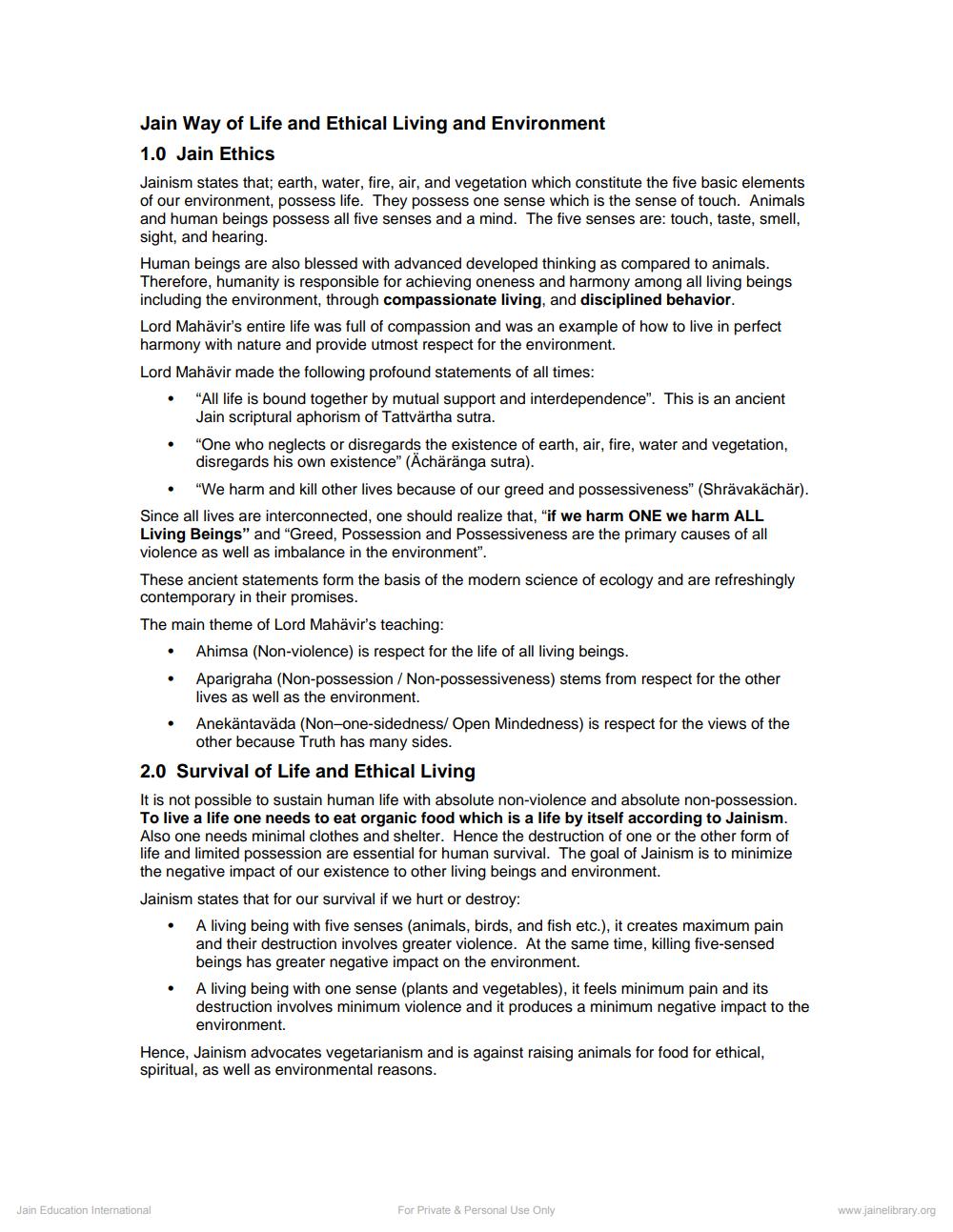Book Title: Jain Way of Life and Ethical Living and Environment Author(s): Pravin K Shah Publisher: JAINA Education Committee View full book textPage 1
________________ Jain Way of Life and Ethical Living and Environment 1.0 Jain Ethics Jainism states that; earth, water, fire, air, and vegetation which constitute the five basic elements of our environment, possess life. They possess one sense which is the sense of touch. Animals and human beings possess all five senses and a mind. The five senses are: touch, taste, smell, sight, and hearing. Human beings are also blessed with advanced developed thinking as compared to animals. Therefore, humanity is responsible for achieving oneness and harmony among all living beings including the environment, through compassionate living, and disciplined behavior. Lord Mahävir's entire life was full of compassion and was an example of how to live in perfect harmony with nature and provide utmost respect for the environment. Lord Mahävir made the following profound statements of all times: • "All life is bound together by mutual support and interdependence". This is an ancient Jain scriptural aphorism of Tattvärtha sutra. "One who neglects or disregards the existence of earth, air, fire, water and vegetation, disregards his own existence" (Achäränga sutra). . "We harm and kill other lives because of our greed and possessiveness" (Shrävakächär). Since all lives are interconnected, one should realize that, "if we harm ONE we harm ALL Living Beings" and "Greed, Possession and Possessiveness are the primary causes of all violence as well as imbalance in the environment". These ancient statements form the basis of the modern science of ecology and are refreshingly contemporary in their promises. The main theme of Lord Mahävir's teaching: Ahimsa (Non-violence) is respect for the life of all living beings. Aparigraha (Non-possession/Non-possessiveness) stems from respect for the other lives as well as the environment. • Anekäntaväda (Non-one-sidedness/ Open Mindedness) is respect for the views of the other because Truth has many sides. 2.0 Survival of Life and Ethical Living It is not possible to sustain human life with absolute non-violence and absolute non-possession. To live a life one needs to eat organic food which is a life by itself according to Jainism. Also one needs minimal clothes and shelter. Hence the destruction of one or the other form of life and limited possession are essential for human survival. The goal of Jainism is to minimize the negative impact of our existence to other living beings and environment. Jainism states that for our survival if we hurt or destroy: A living being with five senses (animals, birds, and fish etc.), it creates maximum pain and their destruction involves greater violence. At the same time, killing five-sensed beings has greater negative impact on the environment. A living being with one sense (plants and vegetables), it feels minimum pain and its destruction involves minimum violence and it produces a minimum negative impact to the environment. Hence, Jainism advocates vegetarianism and is against raising animals for food for ethical, spiritual, as well as environmental reasons. Jain Education International For Private & Personal Use Only www.jainelibrary.orgPage Navigation
1 2 3 4
